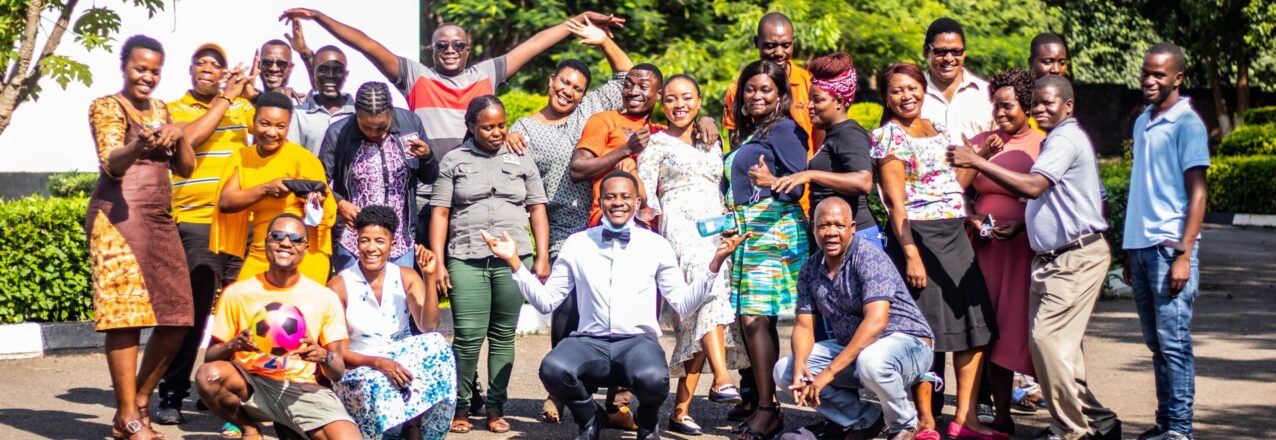In Zambia, the wildlife and conservation sector is male dominated. A number of factors account for this, including structural barriers in recruitment and training and gender norms that see the public sphere as a male domain. Yet evidence suggests that women’s involvement in natural resource management leads to better conservation outcomes, as well as increased wellbeing and economic opportunities for women, their families, and communities.
To help address this gap, USAID facilitated a Women’s Leadership and Empowerment course, a training-of-trainers approach to strengthen the capacity of conservation leaders to advance gender equality and women’s empowerment within their own organizations and the communities they serve. USAID facilitated four cohorts of 100 non-governmental organization professionals from 25 conservation and land organizations, as well as one session for staff from the Department of National Parks and Wildlife. Post-training, these cohorts remain connected via an active WhatsApp group, serving as a community of practice for gender champions in the conservation space in Zambia.
In a follow up survey, participants reported that they are using the skills gained to: reach out to over 22,000 community members (8,000 women, 14,000 men) to increase their awareness on women’s land and resource rights and their role in natural resource governance; hold sensitization meetings with 300+ traditional leaders to promote greater gender inclusion in the chiefdoms; and train government employees from Department of National Parks and Wildlife and Forestry Department, as well as wildlife police officers and community scouts, on the importance of women’s empowerment in the wildlife space.
Below, learn how four champions are advancing women’s empowerment within their organizations!
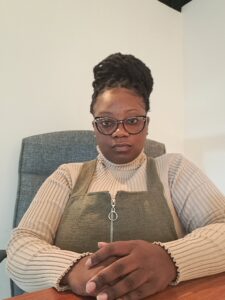 “At an individual level, I am more confident and certain about the things I want to do with the women’s mentorship project I implement. The training helped me believe in myself and realize that I have the skills to work on women’s empowerment and I can and am learning more every day!”
“At an individual level, I am more confident and certain about the things I want to do with the women’s mentorship project I implement. The training helped me believe in myself and realize that I have the skills to work on women’s empowerment and I can and am learning more every day!”
Maina Malaya, is a Communication Officer for Wildlife Crime Prevention, where she manages a mentoring program for young women joining the conservation world. Maina had no gender training before the USAID course, but now has become the gender equality resource person for her organization, working to refine the gender strategy and expand gender-responsive programming. “The [gender] intervention is growing and causing us to invest more. Four more Wildlife Crime Prevention staff are undergoing the Women’s Leadership and Empowerment training soon,” said Maina. She notes the organization has started up a new partnership with Department of National Parks and Wildlife and Chunga Training Centre to help train wildlife police officers and community scouts on gender equality and gender-based violence (GBV) mitigation.
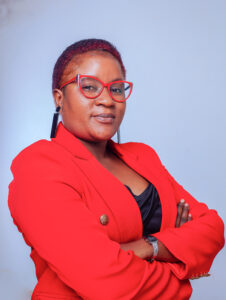 “The Women’s Leadership and Empowerment training deepened my understanding of factors that keep women out of natural resource management and how to address these challenges and increase impacts of our programs. I am now able to adapt my work and reach out to the vulnerable groups, which is allowing our program to have a broader reach.”
“The Women’s Leadership and Empowerment training deepened my understanding of factors that keep women out of natural resource management and how to address these challenges and increase impacts of our programs. I am now able to adapt my work and reach out to the vulnerable groups, which is allowing our program to have a broader reach.”
Sara Banda, is a Lead Community Officer for We Forest, responsible for promoting inclusive community forest management in the Muchinga landscape. After Sara attended the USAID training in 2022 with three other colleagues from We Forest, the organization has worked to reform its programming approach to make it more inclusive. “The training made me realize there were missing dots in the way we delivered our work, which is why less women were involved. Unless attention is paid to gender equality, the participation of women in community forest decisions is missed.” We Forest has also made changes to their reporting system to better capture gender and age disaggregation. What’s more, all projects are now required to complete a GBV assessment to help the organization better understand local dynamics and tailor programming to address these needs.
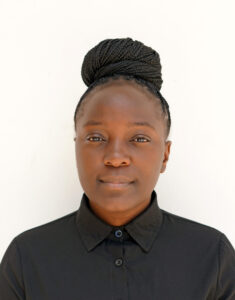 “Through the training, I gained insights into the specific risks and challenges that women face in relation to land ownership and access. This knowledge enabled the National Land Titling Program to design and implement targeted strategies to mitigate these risks, such as information packages on GBV for radio and community meetings, GBV sensitization to community leaders and referral support.”
“Through the training, I gained insights into the specific risks and challenges that women face in relation to land ownership and access. This knowledge enabled the National Land Titling Program to design and implement targeted strategies to mitigate these risks, such as information packages on GBV for radio and community meetings, GBV sensitization to community leaders and referral support.”
Miyoba Masinja, is the Field Director for Medici Land Governance, a private company partnering with the Ministry of Lands and Natural Resources to implement the National Land Titling Program. Miyoba leads a team of 12 USAID-trained women’s land rights champions working in different departments to ensure the land titling process is inclusive. “The training equipped us with an understanding of Zambia’s legal and policy framework on women’s land rights that empowered our team to implement gender integration activities in the program. The advocacy techniques we learned have helped us to increase the buy-in [for gender] internally and with our stakeholders.” Her team meets monthly to discuss progress on gender integration and so far, has seen an increase in joint titling compared to previous efforts.
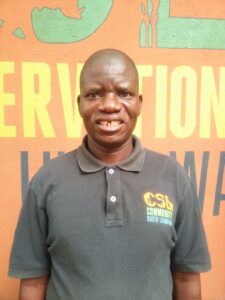 “Before I came on the training, my challenge was how to deal with negative social norms. We saw men in uniform abuse power, which in some cases negatively affected our work, but it was difficult to find the entry points. The training was timely. It gave me the skills to engage law enforcement officers and navigate the social norms to bring in more women in our work.”
“Before I came on the training, my challenge was how to deal with negative social norms. We saw men in uniform abuse power, which in some cases negatively affected our work, but it was difficult to find the entry points. The training was timely. It gave me the skills to engage law enforcement officers and navigate the social norms to bring in more women in our work.”
Frackson Sakala, a Senior Human Wildlife Co- Existence Officer for Conservation South Luangwa, works with communities to increase awareness on wildlife safety and promote effective engagement in conservation activities in areas surrounding South Luangwa National Park. Since joining the Women’s Leadership and Empowerment course in 2022 with two other staff from his organization, GBV mitigation has been a large focus of his work. “As a man I challenge my fellow men on issues of masculinity and norms, they open up and are able to listen to me. I present myself as a role model.” Frackson notes that addressing social norms and creating GBV awareness among the men in law enforcement helps to create an environment that is more friendly towards women. He notes that he has seen family relations among law enforcement officers improve post-training.
These champions are leading the charge to make Zambia’s conservation sector more inclusive, participatory, and sustainable, reducing risks for those involved.


